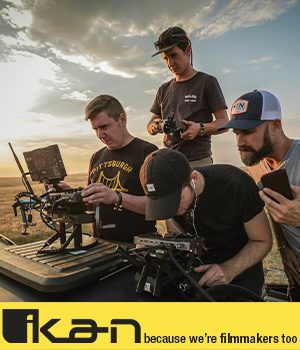- Forum
- General Discussion | Introductions | Off Topic Forum
- Photography General Discussion
- Upgrading from Crop Sensor to Full Frame: Worth It?
Upgrading from Crop Sensor to Full Frame: Worth It?
-
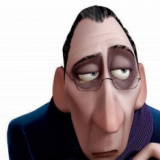 Topic Author
Topic Author
- George F
- New Kid On The Block
-
- Nikon D7500 and D7100
- Followers: 56
- Posts: 49
-
Points:
1544
Post #762588
-
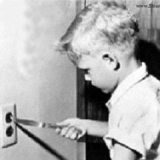
- TCav
- The Lounger
-
- Nikon D7200. Sony A77 II. Pentax KP.
- Followers: 85
- Posts: 1018
-
Points:
30657
Post #762590
A larger image sensor provides a more shallow Depth of Field for images with the same perspective. For instance, a 'Full Frame' body with a 105mm lens and an 'APS-C' body with a 70mm lens, will produce almost identical images with almost identical perspectives. But with an aperture of f/2.8 and a subject distance of 10 feet, the 'Full Frame' body will get a total DoF of 0.45 feet while the 'APS-C' body will get a total DoF of 0.69 feet, which is about what the 'Full Frame' body would get with an aperture of f/4.0. If the 'Full Frame' body was using a 24-70/2.8 lens and the 'APS-C' body was using a 17-50/2.8 lens, they would both be capable of almost identical images, but with an aperture of f/2.8 and a subject distance of 7 feet, the 'Full Frame' body would have a DoF of 0.5 feet and the 'APS-C' body would have a DoF of 0.66 feet, about what the 'Full Frame' body would get with an aperture of f/4.0. And if the 'Full Frame' body was using a 70-300 lens and the 'APS-C' body was using a 55-200 lens, they could both produce nearly identical images, but at f/5.6 and a subject distance of 100 feet, the 'Full Frame' body produces a DoF of 11.4 feet, while the 'APS-C' body produces a DoF of 17.3 feet, about what the 'Full Frame' body would get using an aperture of f/8.0. So the difference in Depth of Field is only about a single stop.
A larger sensor performs better than a smaller one, but few attempts have been made to quantify the difference. DxOMark.com performs a series of measurements on many cameras, and publishes the results on its website in such a way that the results from different cameras can be compared. It publishes a lot of "scores" and other values that seem to be actual measurements, but the only two that are direct measurements are for SNR 18% (signal to noise ratio) and Dynamic Range (the luminance range, from brightest to dimmest.)
The results show that, for instance, the level of image noise of Canon's 'APS-C' 7D Mk II is 35.5 dB at an ISO setting of 400, while the 'Full Frame' 6D scores 36.2 dB at ISO 800 and 33.4 dB at ISO 1600. That works out to the 'Full Frame' 6D having about a 1-1/3 stop advantage over the 7D Mk II with respect to noise. Similarly, the dynamic range of the 7D Mk II at ISO 400 is 11.39 Ev, while the 6D scores 11.55 Ev at ISO 800 and 11.12 Ev at ISO 1600, giving a 1-1/2 stop advantage over the 7D Mk II . (See Canon EOS 7D Mark II versus Canon EOS 6D)
Nikon's 'APS-C' D7200 scores a SNR 18% of 33.7 dB and a dynamic range of 11.89 Ev at ISO 800, which gives Nikon's 'Full Frame' D610 a little over a one stop advantage in noise and about 1/3 stop advantage in dynamic range. (See Nikon D7200 versus Nikon D610) In addition, Sony's 'APS-C' A77 Mk II scores 35.6 dB and 11.52 Ev at ISO 400, roughly 1 stop behind Sony's 'Full Frame' A99, in both measurements. (See Sony SLT Alpha 77 II versus Sony SLT Alpha 99) So there is certainly a promise of improved image quality with larger image sensors.
One of the advantages of 'APS-C' bodies over 'Full Frame' bodies, though, is the abundance of lenses, both 'Full Frame' and 'APS-C only' ('EF-S', 'DX', 'DT', 'DA', 'DC', 'Di-II'), and one of the disadvantages 'Full Frame' bodies have, when compared to 'APS-C' bodies, is that many 'Full Frame' lenses exhibit additional vignetting, distortion, transverse chromatic aberration and/or field curvature that don't appear when those same lenses are mounted on 'APS-C' bodies.
So while a 'Full Frame' body may be capable of better image quality, the lenses may have trouble delivering it.
It's your call, of course, but the advantages are not nearly as great as I've heard some say, and I think you should know exactly what you'd be getting yourself into. If you need the slightly more shallow DoF, the slightly lower noise, and/or the slightly greater dynamic range, and you can find an appropriate lens or lenses from the limited selection, to give you the results you want, I hope it works out well for you.
But there's very little you can't do with a smaller, lighter, cheaper 'APS-C' kit.
-
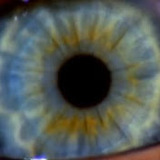
- Whynaut
- New Kid On The Block
- Followers: 13
- Posts: 27
-
Points:
440
Post #762619
-
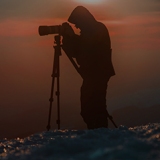
- Rudy Silvo
- Lone Wolf
-
- Canon 5D Mark III
- Followers: 63
- Posts: 124
-
Points:
2463
Post #762624
-

- TCav
- The Lounger
-
- Nikon D7200. Sony A77 II. Pentax KP.
- Followers: 85
- Posts: 1018
-
Points:
30657
Post #762641
Regardless of whether you choose FF or APS-C I'd definitely recommend ditching DSLRs and switch to mirrorless.
-

- TCav
- The Lounger
-
- Nikon D7200. Sony A77 II. Pentax KP.
- Followers: 85
- Posts: 1018
-
Points:
30657
Post #762644
Esseff wrote: Regardless of whether you choose FF or APS-C I'd definitely recommend ditching DSLRs and switch to mirrorless.
While mirrorless cameras are smaller and lighter than dSLRs, that doesn't extend to their lenses, which are just as big and heavy as their dSLR counterparts. So the size and weight advantage quickly diminishes as your collection of lenses and accessories grows. Also, the shorter Flange Focal Distance of mirrorless cameras requires their lenses to bend light more in order to project an image over the entire sensor, so those lenses are more prone to vignetting, chromatic aberration, distortion, and field curvature (soft corners). That is not to say that those flaws can't be overcome, but in order to overcome them, lenses must use more advanced and more expensive designs. Thus, most mirrorless camera manufacturers opt instead to process images in the camera to "compensate" for some of those image flaws. Unfortunately, that processing often simply replaces one image flaw with another, and worse, there is no compensation for the soft corners, and the compensation for distortion actually makes the corners softer. Further, mirrorless cameras are comparatively new, as are their lenses, whereas SLRs and their autofocus lenses have been around for decades, so a new dSLR can use many of the excellent lenses available on the used market at a greatly reduced price. And while dSLR lenses can be adapted to work with mirrorless cameras, use of adapters often introduces other problems in terms of both functionality and image quality.
Post #762646
TCav wrote:
Esseff wrote: Regardless of whether you choose FF or APS-C I'd definitely recommend ditching DSLRs and switch to mirrorless.
While mirrorless cameras are smaller and lighter than dSLRs, that doesn't extend to their lenses, which are just as big and heavy as their dSLR counterparts. So the size and weight advantage quickly diminishes as your collection of lenses and accessories grows. Also, the shorter Flange Focal Distance of mirrorless cameras requires their lenses to bend light more in order to project an image over the entire sensor, so those lenses are more prone to vignetting, chromatic aberration, distortion, and field curvature (soft corners). That is not to say that those flaws can't be overcome, but in order to overcome them, lenses must use more advanced and more expensive designs. Thus, most mirrorless camera manufacturers opt instead to process images in the camera to "compensate" for some of those image flaws. Unfortunately, that processing often simply replaces one image flaw with another, and worse, there is no compensation for the soft corners, and the compensation for distortion actually makes the corners softer. Further, mirrorless cameras are comparatively new, as are their lenses, whereas SLRs and their autofocus lenses have been around for decades, so a new dSLR can use many of the excellent lenses available on the used market at a greatly reduced price. And while dSLR lenses can be adapted to work with mirrorless cameras, use of adapters often introduces other problems in terms of both functionality and image quality.
All good points.
but
Sharpness. DSLRs often need some kind of calibration. Lens to eyepiece distance does not necessarily equal lens to sensor distance. Plus the mirror adds shake.
Also, new is good. I like new.
-

- isabellasophie
- Newbie
- Followers: 0
-
Points:
1411
Post #762817
I shoot APS-C and have upgraded bodies along the way (Canon T3i -> Sony a6000 -> Sony a6400) and am generally happy with my results. Used mainly for family shots and will bring if traveling someplace photo-worthy - but am a hobbyist at best. I've built up a modest lens collection (35/1.8, 50/1.8, 16-70/4) and use the primes mainly. I often feel that FF is the aspirational format marketed by all the big manufacturers...and I sometimes get the itch to try it out. Offerings such as the new a7C are interesting. I've always been impressed with the a7iii and will likely lust after the a7iv when released. Just not sure if the added expense/investment of switching formats is really worth it. I recognize that technically a FF setup is supposed to be better than crop sensor formats, though I'm not sold on whether real-world performance is all that different especially when just taking snaps to view on screens. Rarely do I have anything printed. Anyone out there used to shoot crop sensor format that moved to full frame only to regret that move in the end? Did you end up going back to your original format?George F wrote: I've been shooting with a crop sensor DSLR for a number of years now and have been contemplating upgrading to a full-frame camera. My current Nikon D7200 has been a good camera, but it's getting up there and needs to be replaced by Commercial Painting Services . I mainly shoot portraits and landscapes. I've heard mixed opinions about the tangible benefits of full frame in terms of image quality and depth of field. I did see a few other posts on this site with comments regarding full frame vs crop sensor, but I felt my scenario deserved it's own thread and consideration. I'd appreciate insights from anyone who has made the switch. Is the investment in a full-frame camera and new lenses justifiable for an amateur enthusiast looking to improve their photography?
-

- TCav
- The Lounger
-
- Nikon D7200. Sony A77 II. Pentax KP.
- Followers: 85
- Posts: 1018
-
Points:
30657
Post #762818
Every argument for 'Full Frame' over Medium Format is also an argument for APS-C over 'Full Frame'.
'Full Frame' is a compromise.
- Forum
- General Discussion | Introductions | Off Topic Forum
- Photography General Discussion
- Upgrading from Crop Sensor to Full Frame: Worth It?
Latest Reviews
The Canon EOS R100 is an entry-level mirrorless camera introduced in 2023. But just because it’s an entry-level camera doesn’t mean it’s a bare-bones camera. Find out why in this review!
Nikon’s retro-looking Nikon Zfc is anything but retro. Under its classic body is a host of features and amenities that make it a worthwhile compact mirrorless camera for 2024.
The Canon EOS R50 is one of the newest R-system cameras from Canon. Is it worth your money? Find out all the details you need to know in this comprehensive review.
The Sony FE 70-200mm f/2.8 GM OSS II is Sony’s flagship mirrorless zoom lens. As such, it’s loaded with features and has a top-shelf build quality that makes it a top pick!
Forum Top Posters
-
1Scotty 6 posts
-
2TCav 5 posts
-
3No Show 3 posts
-
4Otto F 2 posts
-
5Jackson Rieger 2 posts
-
6Pork Express 2 posts
-
7CharleyL 2 posts
-
8SJM 2 posts
-
9Fitch 2 posts
-
10Kenta 2 posts
Latest Articles
Using leading lines in photography helps improve the composition by drawing viewers in and leading their eye from the foreground to the background. Explore some fine examples of this in this guide!
The Insta360 has one of the best lineups of action cams and 360-degree cameras. With these Insta360 accessories, you can elevate your photography and videography game!
Creating impactful photos of landscapes depends on many factors, not the least of which is your talent behind the lens. This guide explores other elements required for the best product.
The Canon EOS R100 is an entry-level mirrorless camera introduced in 2023. But just because it’s an entry-level camera doesn’t mean it’s a bare-bones camera. Find out why in this review!
Are you ready to upgrade your camera? Before buying new, you might consider the value of purchasing used gear to save money.
The Olympus OM-D E-M10 Mark IV is a micro four thirds camera released in 2020. It’s an entry-level system along with the OM-D E-M5 Mark III. Use this guide to determine which one is best for you!
Blue hour photography might not be as well known as golden hour photography, but it is every bit as good a time to create epic images of landscapes. Learn how in this quick tutorial!
Nikon’s retro-looking Nikon Zfc is anything but retro. Under its classic body is a host of features and amenities that make it a worthwhile compact mirrorless camera for 2024.










